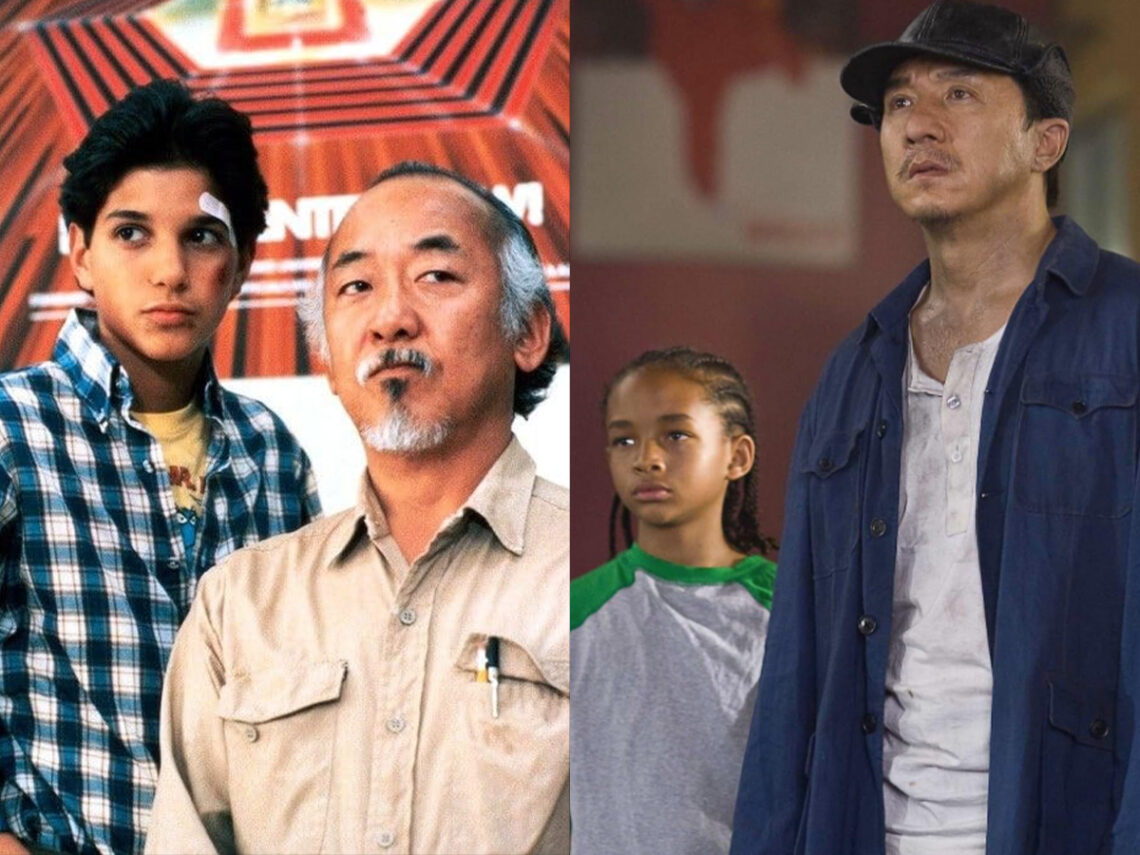
Original vs Remake: Which is the best ‘The Karate Kid’?
Few stories manage to transcend generations. Movies that get reimagined, debated, and revived again and again, not because they need fixing, but because they left a mark too big to ignore. With the release of Karate Kid: Legends, the legacy of one such story returns to the spotlight. And as audiences revisit old rivalries and new beginnings, one question naturally resurfaces.
Which Karate Kid truly kicked the hardest: the 1984 original or the sleek 2010 remake? On paper, both tell the same story. A young outsider learns martial arts from an unexpected mentor and stands up to bullies in a climactic showdown. But beneath that surface, they are two very different films in tone, in impact, and in what they stood for at the time they were made.
Let us rewind. In 1984, The Karate Kid arrived quietly and punched its way into the hearts of millions. It was a simple story: a bullied teen, a wise mentor, and a journey of grit and self-respect. Ralph Macchio’s Daniel LaRusso was awkward, honest, and incredibly easy to root for. But it was Pat Morita’s Mr Miyagi who gave the film its soul. His performance was funny, stoic, and deeply moving. The bond between Daniel and Miyagi was the emotional centre of the film, warm, layered, and so natural that it earned Morita an Oscar nomination.
Fast forward to 2010, and the remake tried to modernise that same formula. This time, Jaden Smith plays Dre, a kid who moves to Beijing and finds himself out of place and constantly targeted. Jackie Chan steps in as Mr Han, a more wounded and serious version of the mentor figure. The training scenes were stunning, the setting brought in visual beauty, and Chan’s emotional depth added unexpected weight. The story was no longer about karate; it was about Kung Fu, but the heart remained intact.
Still, something was missing. While the 2010 version is objectively strong, it feels more like a well-produced update than a heartfelt classic. The charm of the original lies not in the action but in its quiet moments. Like Daniel learning balance on a boat, Miyagi catching a fly with chopsticks, and the sunrise over a humble dojo. These moments did not need CGI or exotic locations. They worked because they felt real. The 1980s version never tried to be cool, and in that very honesty, it became timeless.
There is also the cultural footprint. The original inspired three sequels, a reboot series (Cobra Kai), and has remained a pop culture reference for decades. It gave us the iconic crane kick, “Sweep the leg”, and that soundtrack. The remake, despite good reviews and box office success, has not had the same staying power. It did not birth a franchise, a spin-off, or a meme. It came, it impressed, and then it quietly left.
Now with Karate Kid: Legends bringing together multiple timelines and returning faces, the shadow of the original looms larger than ever. Even new audiences watching the latest chapter are likely to be drawn back to 1984, not out of nostalgia alone but because the original still feels relevant.
Jackie Chan may have delivered a more grounded and vulnerable performance, and Jaden Smith had moments of genuine charm. But the chemistry between Macchio and Morita is unmatched. Their scenes had humour, sadness, wisdom, and genuine affection. You did not need a training montage to know Daniel was changing; you could see it in how he looked at Miyagi, how he walked, and how he learned to fight with humility.
So, which version wins? It is not really a contest. The 2010 remake is a solid film with impressive performances and global appeal. But the 1984 original is lightning in a bottle. It is the story that built a legacy, and no remake, no matter how slick, can quite match that. In the dojo of cinema, The Karate Kid of 1984 still wears the black belt.